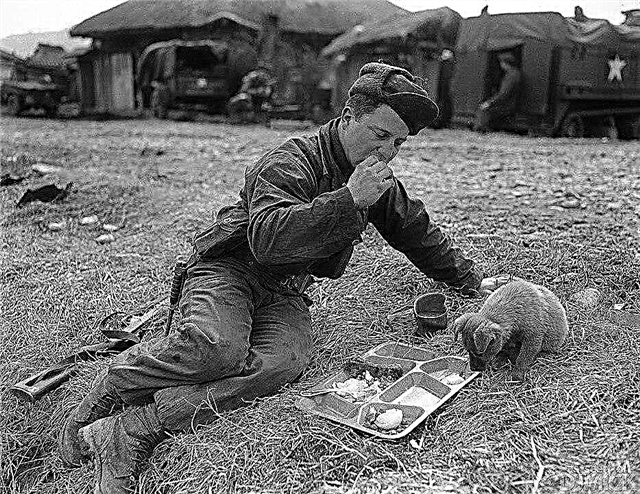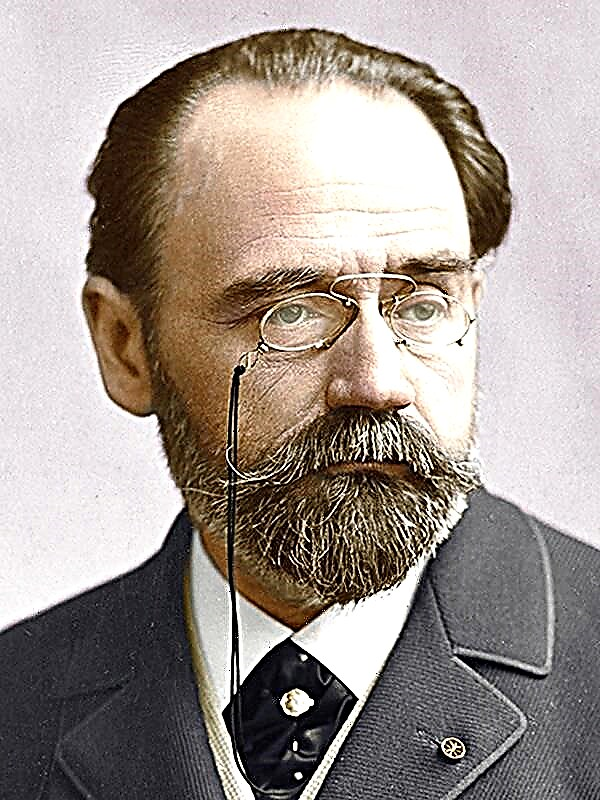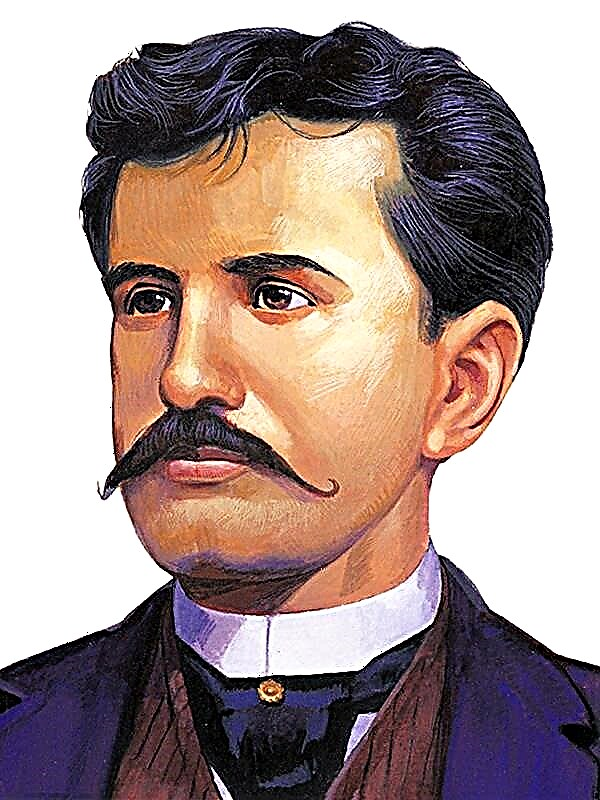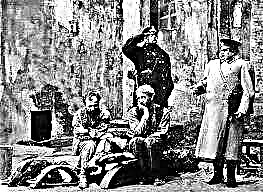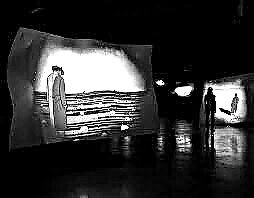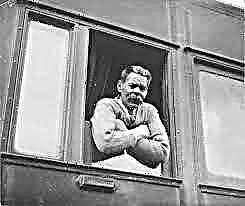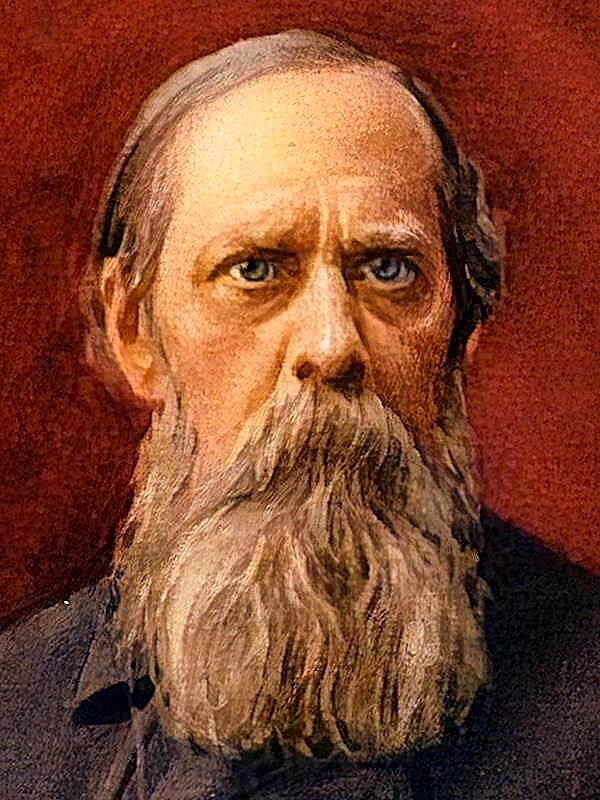The action takes place in medieval France, amid wars and complex court intrigues, the French king Louis XI, a smart and subtle politician, is fighting with powerful European rulers for the prosperity of France. An unprincipled and cautious Louis is the antithesis of Charles the Bold, the Duke of Burgundy, the first enemy of the French monarch. Taking Louis's discretion for cowardice (an unforgivable vice in that knightly era), the reckless and warlike Karl does everything to conquer France. By the beginning of the novel, the mutual enmity of the two great sovereigns reaches extremes.
Not far from the royal castle, fate unexpectedly brings Quentin Dorward, a young nobleman from Scotland, with a modest townsman. On the same day, Quentin tries to save the life of a gypsy, because of which he barely escapes the gallows. A tragic set of circumstances compels the young man to seek the protection of the king, and he enters the service of the personal guard of the riflemen of His Majesty. Watching the ceremonial exit of the king, Quentin recognizes the sovereign acquaintance of the townsman in the sovereign. In the hotel, where they had lunch the night before, the king incognito visited two mysterious ladies, the youngest of whom impressed Quentin with her beauty. The royal exit is interrupted by the arrival of the Ambassador of the Duke of Burgundy, Count de Crevker. The ambassador accuses Louis of harboring two noble ladies, subjects of the duke. The youngest lady, Countess Isabella de Croix, was under the tutelage of Charles the Bold and secretly fled, fleeing unwanted marriage. The offended duke is ready to declare war on France, if the king does not betray the runaways. Louis barely succeeds in persuading the count to wait one day. Quentin realizes that yesterday's strangers are the escaped countess with her aunt. On that hunting day, Quentin Dorward saves the life of the king, but wisely does not boast of his feat. For this, the emperor gives him a number of special instructions, which pleases and surprises Quentin. Where does this unexpected trust come from? Everyone knows the monstrous suspiciousness of the king and the fact that he never trusts new people. Quentin could not know anything about the king’s personal conversation with his secret adviser - barber Olivier. The king told him a vision: on the eve of his meeting with Quentin, the patron saint of pilgrims, Saint Julian, brought a young man to him, saying that he would bring good luck in any enterprise. That is why the superstitious Louis decides to instruct the hero to accompany the Countess de Croix to the distant Liege monastery. The fact is that poor women, without knowing it, became a bet in the major political game of Louis of France. Their ancestral possessions were on the border with Burgundy, and the king wanted to marry the beautiful Isabella to a man loyal to him, so that he could have Karl of Burgundy an ally in the fight against him. Having discussed this with Olivier, the king, regardless of Isabella’s feelings, decides to promise Isabella Guillaume de la Marc, the bastard and the robber. But first, the countess must be sent outside the castle, where the ambassador of Burgundy is located, presenting it as their escape.
Guillaume de la Marc, nicknamed the Ardennes Boar, was supposed to abduct Isabella from the monastery and marry her. Quentin did not know anything about this plan, and he probably had to die in the battle with the wild Boar. So, Quentin and the beautiful ladies hit the road, and the king, meanwhile, makes a bold decision to pay an open visit to Karl of Burgundy as a friend, if only this would help to avoid war.
At the very beginning of the journey, the spell of the beautiful Isabella makes the young Scot lose his head.To his joy, Quentin notices that the girl is also not completely indifferent to him. A charming young man in a knightly way guards ladies, they cannot but be charmed by his company. Quentin's squad consisted of only three soldiers and a guide to the first part of the journey. But looking closely at the guide, Quentin discovers that this is the royal hangman, who once tried to hang Quentin himself. Unexpectedly, the riders catch up with the squad and order Quentin to hand over the women to them. In the battle that followed his refusal, Quentin stuns one of the opponents and rips off his mask. It turns out to be the king’s younger brother, the first blood prince Louis of Orleans. The prince wanted to help his friend, the reckless nobleman, capture such a rich bride. For this misconduct, both will be imprisoned in a terrible dungeon by order of the king. After this incident, Isabella is imbued with tender gratitude to her savior.
In complete ignorance of their future, the detachment continues on its way. Quentin's new conductor evokes a mixture of curiosity and distrust. Gairaddin was a gypsy, a spy of the king, and in addition he was a brother of a hanged gypsy, whom Quentin was trying to save. From the very beginning, the behavior of Gairaddin to Quentin seemed suspicious. His fears were confirmed when the travelers reached a small monastery where they wanted to spend the night. A gypsy sneaked off the fence at night, and Quentin, unnoticed, followed him. Hiding in the branches of a large tree, he overheard a secret conversation of a gypsy with a soldier of the Ardennes Boar, from which he learned that the guide should betray them to the Boar. The young man is shocked by the king’s baseness and decides to reach the Liege Monastery at any cost. Without saying anything to the gypsy, Quentin changes the route and avoids the ambush. Travelers safely arrive at the monastery, where they give themselves under the protection of a bishop, a deeply decent man.
Quentin exposes the gypsy to betrayal, but he promises to help the young man win the heart of a noble lady. The monastery was located next to the Flemish city of Liège, whose citizens defended their privileges of the free city and rebelled against the legal overlord - the Duke of Burgundy. Quentin and Isabella did not know that the proud Flemings were ready to raise a new uprising and their inspiration - Boar de la Marc, who, as a rich bride, was promised Isabella. Suspecting nothing, Quentin goes to the city, there he gets acquainted with influential citizens and learns from them about the impending uprising. He hurries to the monastery to warn of the dangers of a good bishop, but nothing can be done. On the same night, rebels led by de la Marc attack the monastery, taking its inhabitants by surprise. Quentin is awakened by the furious roar of the besiegers and the cry of a gypsy who burst into the room, who urges him to save the ladies. Quentin hurries down to find two women under a veil. Thinking that these are both countesses, a brave young man takes them out of the castle and discovers a new gypsy deceit: instead of Isabella, he rescues the old countess’s handmaid, Gayraddin’s accomplice. It turns out that the gypsy wanted to thank Quentin in this way by getting him a rich bride in the person of Aunt Isabella in love with him. In desperation, Quentin hurries back to the monastery, hoping that Isabella is still alive. He finds a girl and miraculously saves her from de la Marc, passing her off as the daughter of a respectable city dweller, his acquaintance. To Quentin's horror, the rebels execute the bishop.
Quentin and Isabella take refuge in a city where Isabella decides to return under the protection of Karl of Burgundy, as Louis only deceived and betrayed them. She asks Quentin Dorward to accompany her to Burgundy. They manage to slip out of the city, reach the border with Burgundy, but then they are overtaken by the pursuit of de la Marc. But at that moment a detachment of Burgundian knights is shown. They put to flight the warriors de la Marc.To the joy of Isabella, the detachment was commanded by Count de Crevker, her relative and a noble man. He joyfully greets his long-disappeared relative, but is suspicious of Quentin - he is a servant of the French king. The count always considered Isabella's escape the height of stupidity, and, knowing the mad temper of his master, heralded great troubles to the girl and her savior. A wave of anger aroused in him the news of the death of the Liege bishop, who was loved by everyone for his wisdom and decency. The count vows to take revenge on the murderer Guillaume de la Marc, and in the meantime hurries with this woeful news to Karl of Burgundy. Quentin Earl suspects the incitement of the townspeople to rebellion, although Isabella is trying to assure him of the nobility of the young man. Exhausted by the road, Isabella is left in the care of the venerable canoness of the nearby monastery, and Quentin and Count de Krevker continue on to the court of the Duke of Burgundy.
Meanwhile, events of extraordinary importance took place in the ducal castle. King Louis with a small retinue decided to pay a friendship visit to his sworn enemy the Duke of Burgundy, reminding everyone of the mouse that had come to visit the cat. In fact, the king, most of all in the world wishing to prevent a war with Burgundy, wanted to disarm his ingenuous and fiery rival with such an act of trust and friendship. Karl was at first benevolent and intended to observe etiquette, accepting the king of France, as befits a faithful vassal. Hating the king in his soul, he restrains his anger with all his might, which, as you know, does not correspond to his temperament. But right here during the hunt, Count de Krevker arrives and reports the tragic news of the rebellion of the liars and the death of the bishop. He adds that the messenger of the French king was implicated in these events, implying Quentin Dorward. This mere hint is enough to provoke the duke's pent-up anger with such difficulty.
Karl orders to imprison Louis in the prison tower, where the ancestor of the king was once treacherously killed. The king is overcome by despair, and he wants to take revenge on his astrologer, who predicted good luck on the trip. The cunning stargazer only miraculously escapes the vengeance of the cruel monarch. He predicts that the hour of his death is only a day separated from the death of the king himself, which frightens the superstitious Louis terribly. Finding himself in an almost hopeless situation, the king is trying to gain as many supporters as possible among Karl’s noblemen. He uses flattery and bribery for this. Fortunately, the nobles themselves were interested in maintaining peace between the countries, since many owned lands in France and did not at all want to lose them. The gold of France has also done its job. As a result, the duke was persuaded to consider the matter officially and fairly, for which he should convene the Council of State and invite the king to it. Krevker promised to present at the council a witness capable of confirming the king's innocence, referring to Quentin Dorward. Quentin, as a knight and a man of honor, did not intend to testify against the helpless and abandoned king. He is grateful to Louis for accepting him for service in difficult times and ready to forgive the king for his betrayal. But the young man explains to Krevker that since Karl also intends to call Countess Isabella, he needs to warn the girl about which she will have to keep silent. Krevker objects to their meeting and reminds Quentin what an irresistible distance separates him, the poor alien, from the most noble and beautiful bride of Burgundy.
At the council, Karl intended to put to Louis the humiliating conditions of his release. The king would be required to cede Burgundy territory and privileges, and most importantly, to agree to Isabella’s marriage with the king’s brother, Prince of Orleans. Thanks to Quentin, the king manages to prove his innocence in the uprising in Liege.But when the duke announced his decision to betrothe the prince and Isabella, the girl falls at the duke's feet and begs him to take all her wealth, but let her control her soul and let her go to the monastery. The duke hesitates, and suddenly announce the arrival of the herald of the Wild Boar de la Marc. They turn out to be the disguised gypsy Gayraddin, who informs of the will of the self-appointed bishop to single-handedly command the city of Liege, and also pay him the dowry of his wife, Countess Ameline de Croix, the extravagant aunt Isabella. Carl and Louis respond to these arrogant demands with an order to hang a gypsy and decide to jointly oppose de la Marc. Before this, the Duke announces that Isabella will marry the one who brings the head of de la Marc and thus avenge the death of the bishop, of whom Isabella was indirectly guilty.
During a fierce battle with the forces of Liège, Quentin tries to break through to the Boar and personally fight him. But the fight was interrupted by a cry for help. This was the scream of the daughter of the townsman who helped save Isabella from the besieged monastery. For her sake, Quentin leaves his adversary and his uncle, also a Scottish shooter, gets the victory. He brings de la Marc's head to the sovereigns, but, to the unspeakable joy of the young lovers, gives in to the precious prize of Quentin.

